- Home
- Bronwyn Scott
The Secrets of Lord Lynford Page 7
The Secrets of Lord Lynford Read online
Page 7
His eyes glinted with their dark spark over the rim of his champagne flute, a knowing smile playing on those sensual lips as his low voice rumbled enticingly, ‘I’m always glad to be of service, Eliza.’
Eliza. There it was again. She’d never thought of her name as sexy before. Eliza was a plain name, but not on his lips. On his lips, it might be the most beautiful name in the world. Damn him. With one word, he’d destroyed her efforts and ridden roughshod over her warning. If there was a proposition, he would make her refuse it bluntly at the critical moment.
‘More champagne?’ he offered, holding up the half-empty bottle. ‘The road is smooth through here, I should be able to manage pouring another glass, if you can manage keeping it still,’ he teased. They poured with more success this time, Eliza catching sight of the label.
‘Veuve Clicquot?’ It was French and expensive. No wonder it tasted divine.
‘You know it?’ Lynford smiled, pouring the remnants into his glass.
‘Only by name,’ Eliza admitted. ‘My husband was wealthy, but he was also frugal.’ They’d had luxuries aplenty, but not champagne unless they were hosting an important party.
‘It’s a special day and I thought it called for a special champagne. We are celebrating our students’ arrival for the first term and your first night in the dower house.’
‘Oh!’ Eliza gasped regretfully as memory flooded her. ‘You had students today and I called you away.’ She felt awful that he’d spent so much time with her, as if he’d had nothing better to do. He must have gone back to the school after he’d left her.
Lynford laughed, setting her at ease. ‘I was expendable, I assure you. Kitto had it all under control.’ He gave her a mockingly serious look. ‘You would not have liked it, too much chaos with all the boys running willy-nilly up and down the stairs.’ But he’d liked it, Eliza thought. She saw it in his eyes and heard it in his tone. The day had pleased him, as well it should have.
‘You’ve done a remarkable thing with that school,’ she complimented. The sun was starting to set, turning the sky blossom pink. It was her favourite time of day, the magical hour between day and dusk when she liked to imagine the world was at peace, slowing down from whatever had caused it to race during the day. She felt that peace now in the carriage with Lynford, a comfortable silence settling between them as they drove through the grounds of Falmage Hill, sipping their champagne as the sun dipped.
Lynford offered to open a second bottle, but she declined with a smile. ‘I chose the champagne for another reason, too,’ he said, tucking the bottle back beneath the seat. ‘Veuve Clicquot is named for the widow who ran the vineyard. You remind me of her. She was twenty-seven when she took over the family empire. And, like you, she was successful, too.’ He held her gaze and a bolt of heat went through her at the intensity of his attention. ‘You impress me, Eliza. I am so very glad you didn’t turn out to be an old woman.’
A bolder woman might return the compliment and say she was glad he’d turned out not to be an older man. But that would invite an intimacy she did not want. She offered a tremulous smile instead, uncertain how to respond. Once again he had caught her off guard. No one had ever flirted with her using her own accomplishments as compliments. Goodness knew there were few men who approved of those accomplishments. Usually, they were seen as failings to be held against her. ‘What I’ve done is nothing more than the tasks laid before me. It’s a little like giving a stranger a home, isn’t it? I did them because I could.’
‘Touché.’ He raised his glass in salute and drained the last of it as the carriage rolled to a halt. ‘Here we are, the orangery, my pride and joy.’ He hopped down and offered her his hand. ‘This way, Eliza, dinner is served.’
Chapter Seven
That was an understatement, Eliza thought, taking her seat at a crystal-and-candle-laden table in the orangery. Dinner wasn’t served, it was presented on white china plates, arranged in elegant perfection with carefully drizzled sauces and an array of colours—pink salmon, orange carrots, green herbs—all set against a backdrop of exquisite beauty. The orangery itself was breathtaking with the remainder of the setting sunlight coming through the glass, turning the table crystal to diamonds. Potted palms lined a path through the building along with fruit trees sporting oranges and lemons that perfumed the air with citrusy scents. The sound of trickling water came from deeper in the room and somewhere birds chirped.
‘This is like a tropical paradise.’ Eliza looked about her, unwilling to hide her appreciation. ‘It’s a little world all of its own.’
‘We can walk through it after dinner,’ Lynford offered, popping the cork off a bottle of chilled white wine. He poured a small amount into her glass. ‘This will bring out the flavour of the salmon.’ They’d been served a single plate containing a little of each food item and the servants had withdrawn, leaving them alone in the candlelit paradise.
It was a different way to eat, Eliza recognised immediately. She approved. There were no courses, no stuffing of oneself, no drinking to excess. There was savouring and sipping. This meal was art and science all in one, pairing tastes with one another to maximise both the fish and the wine. Each bite was a revelation, as was the man across the table from her. ‘This is the most delicious meal I think I’ve ever eaten.’ Eliza took another slow, deliberate bite of her fish. ‘I would not have guessed you to be a gourmet.’ The Marquess of Lynford was a big man, the kind of man she associated with a hearty appetite, who preferred puddings and roasts in copious quantities and was more interested in quantity than quality. ‘I’ve found Cornishmen tend to prefer the solid foods of the countryside,’ she tried to put it delicately.
Lynford laughed at the comment. ‘You’re not incorrect. There is much diversity, however, to be found in the countryside. Some Cornishmen are just more inventive than others.’ He gestured to the salmon. ‘These are from Bodmin Moor. A smart man can fish the upland rivers until December. A smarter man knows fish is healthier, too, than a heavy beef diet. It keeps the gout away.’ He poured her a little more wine. ‘I am interested in the science of food—not only the different tastes and flavours we can create, but how we can use food to eat well and live well. I’ve worked with the cook at the school to design a diet for the boys in the hopes they will learn the value of healthy eating along with their studies.’
‘Are orange trees part of that?’ Eliza sipped her wine, finding the conversation fascinating. Or was it the conversationalist? It was heady, sitting with him, exchanging ideas. There were layers to this man, unsuspected depths and she was filled with the urge to peel each of them back, like one of his oranges, until she reached his core. What would she find at the heart of the Marquess of Lynford?
‘Orange trees are essential. Citrus fruits are excellent for keeping scurvy away. They are also extremely difficult to grow in the wild given the English weather. So, I grow them here. The school will be well provided for.’
‘That’s ingenious,’ Eliza complimented, truly impressed with his foresight and his creativity. ‘Whatever gave you that idea?’
‘Not a what, a who.’ Lynford smiled, his gaze taking on a nostalgic cast. ‘A mentor, a friend, suggested it. He has—had—spectacular greenhouses at his estate.’
‘Had?’ Eliza asked softly, picking up the past tense reference. She sensed a change in his mood. The nostalgia was tinged with sadness.
‘He died this past summer. Richard Penlerick, the Duke of Newlyn. He was a strong supporter of the school and the things I want to do there.’ Lynford’s dark eyes were shadowed but frank. ‘I miss him very much. He was like an uncle to me. His son and I are close friends.’
Newlyn. Of course. The newspaper in Truro had covered it. The Cornish Duke had died tragically, if she recalled. A sudden death, unexpected. She reached out a hand and covered Eaton’s where it lay on the table. ‘I am genuinely sorry.’
Lynford nodded slowly, acceptin
g her sympathy. The candlelight played across his face, catching sorrow, resentment, lingering anger and something more: bone-deep grief. She knew a little something about that. She’d felt that way for months after Huntingdon had died. ‘I don’t know what is worse,’ she offered. ‘To have time to prepare and know the end is coming, or to face it suddenly without warning.’ She paused. They did not know each well. Perhaps it was wrong to think she could offer counsel, but she forged ahead, preferring to err on the side of empathy. There’d been no one to grieve with her, to help ease her pain when she’d lost Huntingdon. She would not leave someone else to face that grief alone if she could help it.
There was a certain intimacy between them, the orangery having shrunk to the circle of light surrounding them as she spoke. ‘The day Huntingdon died was a normal day, just like any other. He had breakfast. He reminded me we had guests coming for dinner that night. Then he walked out of the door and didn’t come back. He had no idea and neither did I that it would all be over in a few hours.’
Eaton’s eyes glittered like polished obsidian. ‘You loved him? You had a good marriage?’
She smiled fondly. ‘Yes, he was a decent man and I knew going into it he would not outlast me, that I would be the one left behind. I just didn’t think it would be that day. I suppose one never does.’
Eaton picked up her hand and threaded his fingers through hers, watching the candlelight bathe the bracelet at her wrist. ‘Left behind. You’ve captured it precisely. That is exactly how I feel. He left me. He left Vennor, his son. He left all of us and we didn’t even get to say goodbye. It wasn’t just goodbye that went unsaid. It was all the other things. The loving words, the gratitude, the acknowledgement of how much his kindnesses, his very life, mattered.’ He shook his head. ‘Does the hurt, the emptiness, ever go away?’
‘No, but it does change.’ Eliza’s voice was just above a whisper. ‘You start to carry them with you instead of your sorrow.’
They were both whispering now. ‘And the anger? Does it change, too? I’ve been angry for months. I wanted his life to matter. I wanted his death to matter. He deserved better than a blade in the dark, killed by a common criminal for no reason.’ She felt his fingers tighten on hers. ‘I want there to be a reason,’ he admitted before pulling back with a rueful smile. ‘My apologies. I didn’t mean for the evening to take such a turn. I don’t normally invite people to dinner and then lay myself bare to them.’ He gave a short laugh and wiped his palms on his breeches. ‘Thank you for listening. I haven’t talked about Richard Penlerick since I came home. Perhaps I needed to.’
‘Perhaps there was no one to talk to. I think it matters who you tell. These things...’ Eliza waved an ephemeral hand ‘...cannot be told to just anyone.’ She was touched he’d chosen her.
‘I’m glad it was you.’ Lynford pushed back from the table with a burst of energy, wanting to leave the recent conversation and its emotions behind. ‘Are you ready for the tour? I think the orangery is ready for us.’
Beyond him, the path through the orangery had been lit. Eliza had been so intent on him she’d not noticed the servants discreetly placing the lanterns to guide their way. ‘This place must be a wondrous refuge in the winter.’ Eliza took his arm, looking about her as they strolled.
‘It is. I spend a lot of time here, though not in the summer. With all the glass, it gets too warm.’ He pointed out the palms with coconuts hidden under their large, leafy fronds, the orange trees with their waxy leaves and citrus treasures, the potted lemon trees that had come all the way from Italy. There were flowers, too, poinsettias from the Caribbean and rare varieties of orchids from Asia.
‘I hope to bring the boys from the school here for lessons.’ Lynford stopped to study the leaves of a lemon tree. ‘I want them to learn science by visiting the ocean, by fishing in the rivers, by tromping through the woods and respecting the natural science around them in their own region.’
He smiled at her and she was nearly undone. ‘You’ve not only designed a diet for them, you’ve designed a curriculum as well.’ Lynford hadn’t just built a school, he’d built a world. An entire lifestyle had been subtly woven into the fabric of the conservatory. It shamed her little vision of miners’ schools. She had not dreamed big enough.
‘I didn’t do it alone. Kitto and I worked on the curriculum together. I think it’s rather novel. It’s hands-on learning, much like music instruction is. We thought, why not extend that idea to other subjects like science and history? They can learn history by visiting old ruins and follies, by re-enacting key battles. They can’t learn everything that way, but a good portion of what they need to know can be taught with far more activity than it traditionally is.’ He warmed to the subject as they walked. ‘When I was growing up, the lessons I liked best and remembered the most were the ones where my tutors set aside the books and showed me. In the summers, I grew a garden and, as I tended it, my tutor talked about soil and the importance of crop rotation, how to calculate crop yield.’ He paused here and grinned at her and she could see the boy he’d been in that teasing smile. ‘That lesson was a good one. It combined mathematics and science.’
‘It certainly sounds more exciting than my lessons when I was young. I am already wondering if I can adapt these ideas for the miners’ children.’ They were accustomed to plenty of activity during the day and definitely not used to sitting for long periods of time. For them, traditional school would be a challenge. ‘Is that why you wanted to establish a school? To try out your ideas?’ It had intrigued her from the beginning, when she’d first been approached in January to support the conservatory. Why would a man of his standing want to found a school? Self-importance? Legacy? But the urgency behind the school, the determination to open it this autumn, didn’t support that theory.
Lynford laughed. ‘Oh, you don’t want to know.’
‘Now I especially want to know,’ Eliza cajoled. He almost seemed embarrassed and that was interesting when he was usually the epitome of confidence.
‘All right, but it has to be a secret.’ He gave her a conspiratorial wink, his eyes dancing. ‘I had a friend who suggested it in order to convince Cador Kitto to stay in the area on a more permanent basis. I wanted my friend to be happy, so I set up the school.’ He looked sheepish with the confession. ‘You’ll be disappointed now, knowing that it wasn’t entirely altruistic, not originally.’
‘Just for the good of a friend. Must be a very good friend,’ Eliza pressed. Her curiosity wanted details.
‘An old friend, down on their luck,’ Lynford offered.
‘A woman, perhaps?’ He was being cryptic, a sure sign a woman was involved and Eliza felt confident she knew who, but perhaps not why. ‘Rosenwyn Treleven, maybe?’
Lynford looked surprised. ‘Why would you think that?’
‘You mentioned she and Mr Kitto were newly married.’ She bit her lip, trying to hide a smile at her discovery. Another layer peeled back. Lynford was a secret romantic. She didn’t need a great imagination to see how this story went: Rosenwyn and Cade Kitto falling in love, but Kitto needing to leave Porth Karrek for the pursuit of his work, a lifestyle not suited to the gently bred Rosenwyn. In order to help his friend, Lynford had supported her idea of a school. It was overwhelming, really. A whole school given in order to see his friend wed. ‘I think that is the very grandest of gestures,’ Eliza assured him.
‘It was the least I could do for her. She’d been jilted in love before. I didn’t want to see her hurt again.’ It was a difficult admission for him to make. Eliza heard it in his tone. Another layer fell. Lynford was a humble man at his core. He didn’t like attention being called to his good deeds.
They passed a worktable with tools and a book lay open beside a microscope. ‘I apologise, I haven’t picked up after myself,’ Lynford excused the mess. ‘I’ve been researching the healing properties of orchids. Ancient Chinese herbalists believed the orchid could heal di
sease. I’ve also been extracting vanilla from the orchids for cooking.’
‘You’re a gourmet, a botanist, a scientist.’ Eliza studied him. She’d not been prepared to find so much underneath. ‘The Marquess of Lynford is a Renaissance man.’
‘Hardly. I am just me. Eaton. I do wish you’d use my name as I asked you to last night.’ He steered them around a corner. ‘Ah, here we are, the fountain and the aviary.’ They’d reached the centre of the orangery, the source of the trickling water and the chirping birds. Birds hung in large, elaborate cages while others flew about unfettered, decorating the space with their bright colours. Eliza sat at the edge of the fountain, her skirts spread about her, watching in amazement as he held up a finger and a small green-and-yellow bird landed. Lynford—Eaton—dug in his evening-coat pocket and retrieved some seed. He let it eat, smoothing the bird’s feathers with a gentle hand.
‘This is a parakeet. Would you like to hold him? He’s quite tame. Stick out your finger like a bar. He’ll hop on,’ Eaton instructed.
Thinking of him as Eaton was a dangerous step to take. It fostered a sense of intimacy as real as the intimacy they’d shared at the table, only this first-name intimacy was more portable. It would not be left behind with the dishes. It would go with them wherever they went.
The parakeet hopped onto her finger and Eliza gasped, delighted. ‘I’ve never done anything like this,’ she said. Eliza almost blurted out how much Sophie would love to see the birds, but her daughter was not a topic of casual conversation. Sophie belonged to her private world, the world she entrusted to few.
‘You’re a natural. He likes you,’ Eaton assured her.
She looked about at the birds in cages. ‘I wonder if they get jealous of the parakeets flying free?’ As beautiful as the orangery was, she didn’t like the idea of that beauty being at the expense of caged animals.

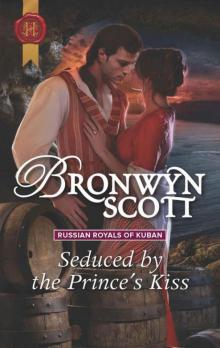 Seduced By The Prince's Kiss (Russian Royals 0f Kuban Book 4)
Seduced By The Prince's Kiss (Russian Royals 0f Kuban Book 4)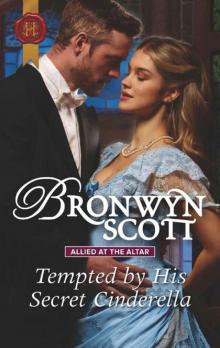 Tempted By His Secret Cinderella (Allied At The Altar Book 3)
Tempted By His Secret Cinderella (Allied At The Altar Book 3)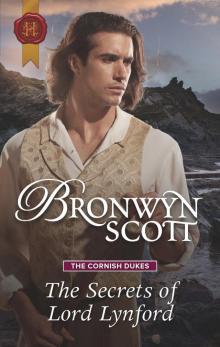 The Secrets of Lord Lynford
The Secrets of Lord Lynford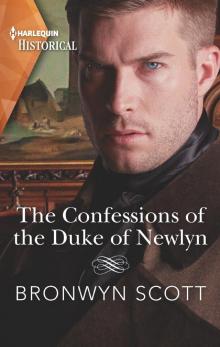 The Confessions of the Duke of Newlyn
The Confessions of the Duke of Newlyn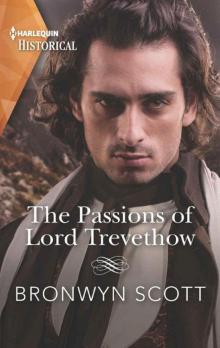 The Passions 0f Lord Trevethow (The Cornish Dukes Book 2)
The Passions 0f Lord Trevethow (The Cornish Dukes Book 2)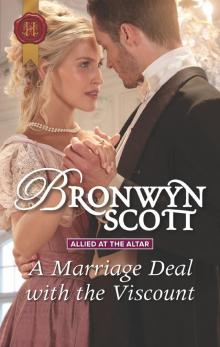 A Marriage Deal with the Viscount--A Victorian Marriage of Convenience Story
A Marriage Deal with the Viscount--A Victorian Marriage of Convenience Story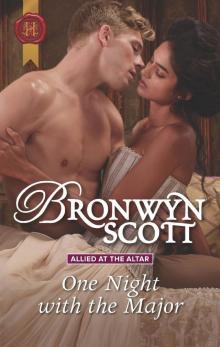 One Night with the Major
One Night with the Major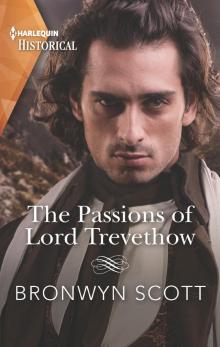 The Passions of Lord Trevethow
The Passions of Lord Trevethow Grayson Prentiss's Seduction
Grayson Prentiss's Seduction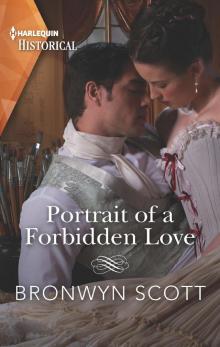 Portrait of a Forbidden Love--A Sexy Regency Romance
Portrait of a Forbidden Love--A Sexy Regency Romance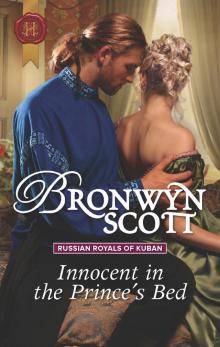 Innocent in the Prince's Bed
Innocent in the Prince's Bed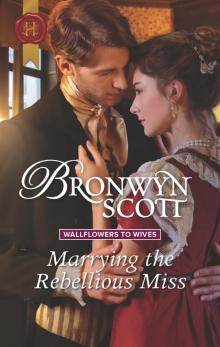 Marrying the Rebellious Miss
Marrying the Rebellious Miss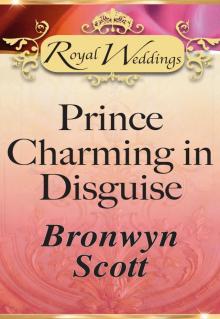 Prince Charming in Disguise
Prince Charming in Disguise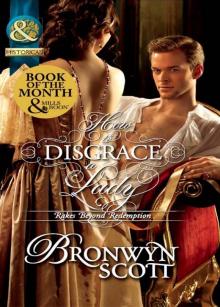 How to Disgrace a Lady
How to Disgrace a Lady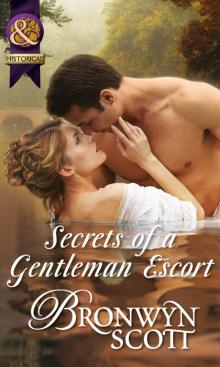 Secrets of a Gentleman Escort
Secrets of a Gentleman Escort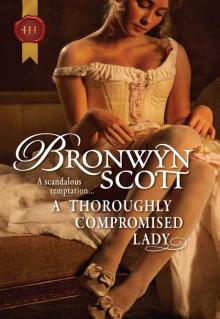 A Thoroughly Compromised Lady
A Thoroughly Compromised Lady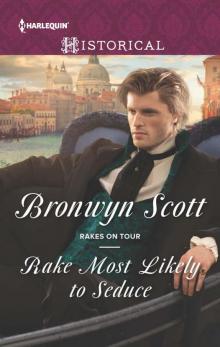 Rake Most Likely to Seduce
Rake Most Likely to Seduce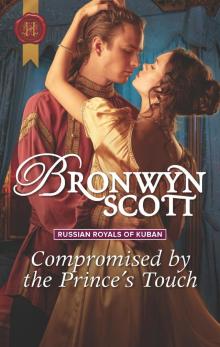 Compromised by the Prince's Touch
Compromised by the Prince's Touch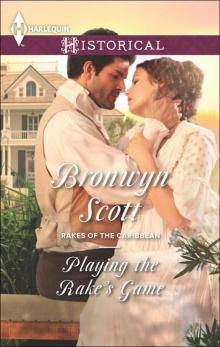 Playing the Rake's Game
Playing the Rake's Game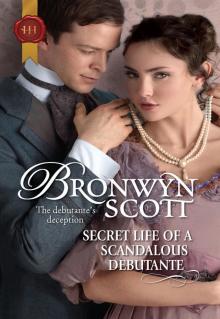 Secret Life of a Scandalous Debutante
Secret Life of a Scandalous Debutante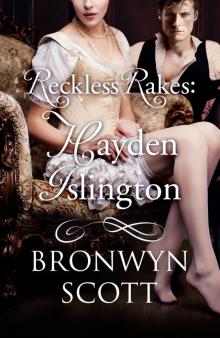 Reckless Rakes - Hayden Islington
Reckless Rakes - Hayden Islington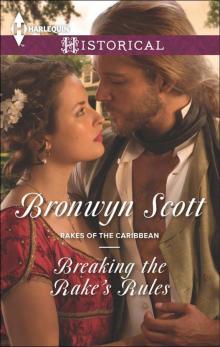 Breaking the Rake's Rules
Breaking the Rake's Rules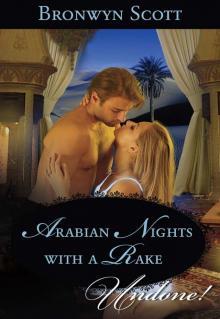 Arabian Nights with a Rake
Arabian Nights with a Rake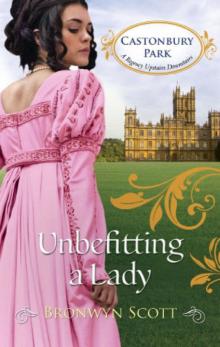 Unbefitting a Lady
Unbefitting a Lady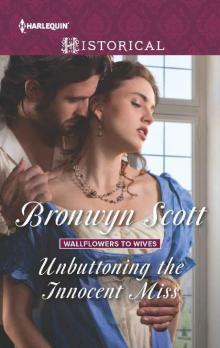 Unbuttoning the Innocent Miss (Wallflowers to Wives)
Unbuttoning the Innocent Miss (Wallflowers to Wives)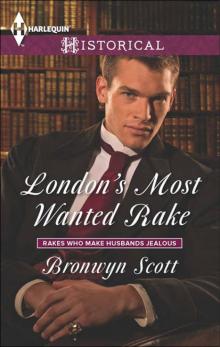 London's Most Wanted Rake
London's Most Wanted Rake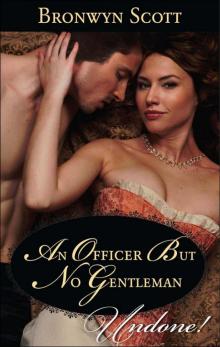 An Officer but No Gentleman
An Officer but No Gentleman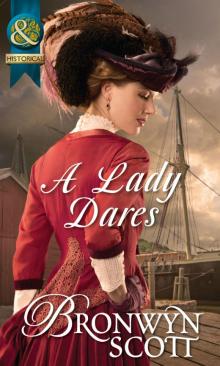 A Lady Dares
A Lady Dares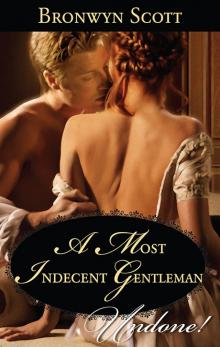 A Most Indecent Gentleman
A Most Indecent Gentleman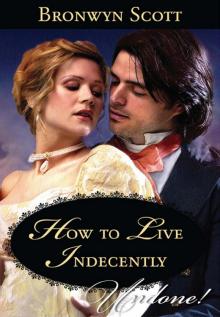 How to Live Indecently
How to Live Indecently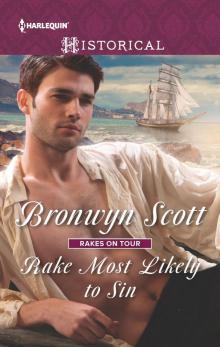 Rake Most Likely to Sin
Rake Most Likely to Sin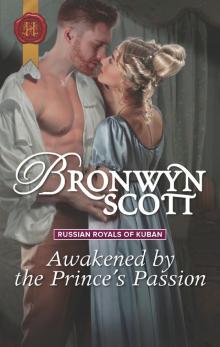 Awakened by the Prince's Passion
Awakened by the Prince's Passion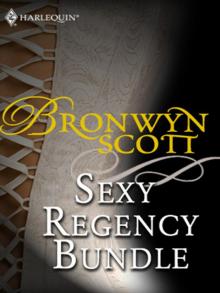 Bronwyn Scott's Sexy Regency Bundle
Bronwyn Scott's Sexy Regency Bundle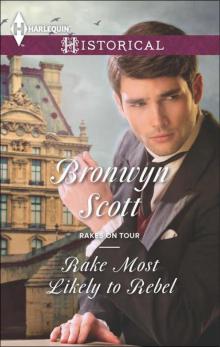 Rake Most Likely to Rebel (Rakes On Tour Book 1)
Rake Most Likely to Rebel (Rakes On Tour Book 1)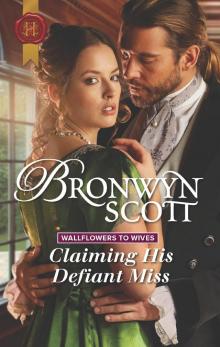 Claiming His Defiant Miss
Claiming His Defiant Miss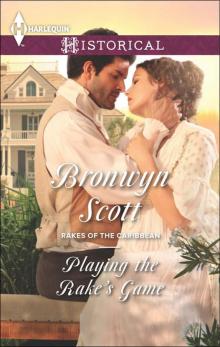 Playing the Rake's Game (Rakes Of The Caribbean Book 1)
Playing the Rake's Game (Rakes Of The Caribbean Book 1)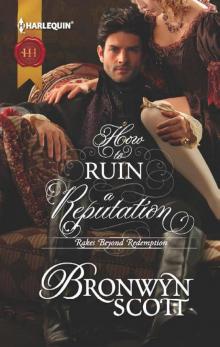 How to Ruin a Reputation (Rakes Beyond Redemption)
How to Ruin a Reputation (Rakes Beyond Redemption)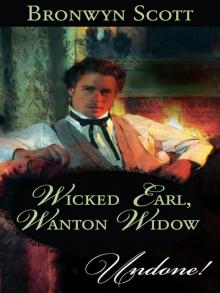 Wicked Earl, Wanton Widow
Wicked Earl, Wanton Widow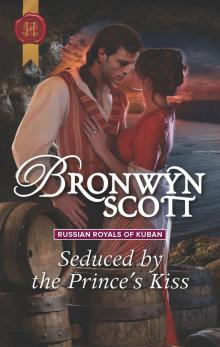 Seduced by the Prince's Kiss
Seduced by the Prince's Kiss